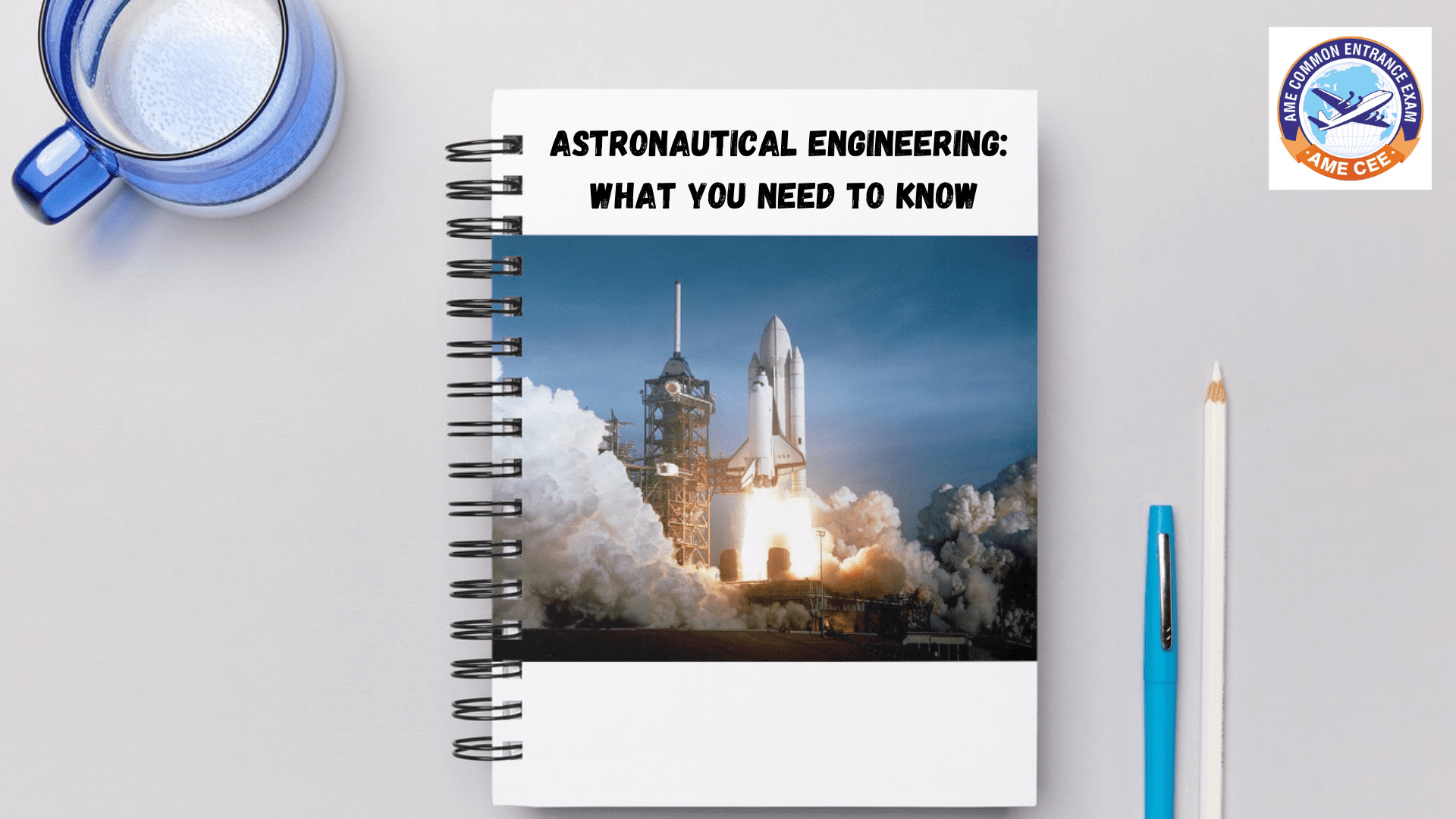What is Astronautical Engineering?
Astronautical Engineering is a specialized branch of aerospace engineering focused on the design, development, and maintenance of spacecraft and satellites. It encompasses technologies that help with space exploration, communication, navigation, and remote sensing. Astronautical engineers are responsible for creating complex systems like rockets, space capsules, satellites, and planetary probes, which operate beyond Earth’s atmosphere.
Known as “rocket science,” astronautical engineering combines advanced principles of engineering, physics, and mathematics to push the boundaries of human space exploration. This field is crucial for developing new technologies in space travel, satellite systems, and even Earth-based applications.
Astronautical Engineering vs. Aerospace Engineering
While aerospace engineering is the broader field that encompasses the study and development of aircraft and spacecraft, astronautical engineering is a specialized subset. Aerospace engineering includes two main branches:
- Aeronautical Engineering: Focuses on aircraft that operate within Earth’s atmosphere (e.g., airplanes, drones).
- Astronautical Engineering: Concentrates on spacecraft and satellites that operate in space.
Astronautical engineers work closely with aerospace engineers to ensure seamless collaboration in the design and optimization of air and space flight technologies.
What Do Astronautical Engineers Do?
Astronautical engineers play a vital role in the space industry. Their primary responsibilities include:
- Designing and Developing Spacecraft: Engineers create spacecraft, such as rockets and satellites, that can survive harsh conditions in space.
- Testing and Troubleshooting: They ensure spacecraft meet specific standards by identifying problems and making necessary adjustments to designs.
- Optimizing Spacecraft Performance: Astronautical engineers use advanced techniques to enhance the efficiency and safety of space vehicles.
- Collaboration: Astronautical engineers frequently work with multidisciplinary teams, including aeronautical engineers, to integrate air and space technologies.
Although they are not astronauts, many astronauts come from astronautical engineering backgrounds due to the technical expertise required for space missions.
Average Salary for Astronautical Engineers
The salary of an astronautical engineer can vary depending on factors such as location, education, and experience. On average, the median annual salary for aerospace engineers, which includes astronautical engineers, is approximately $122,270 according to the Bureau of Labor Statistics. Those with specialized skills and experience in the field can expect higher salaries, particularly in government agencies, private contractors, and space-related industries.
Qualifications for Astronautical Engineers
To become an astronautical engineer, candidates typically need a strong educational background and hands-on experience in engineering. Here’s what you’ll need:
- Education Requirements
Most astronautical engineers need at least a bachelor’s degree in aerospace engineering, astronautical engineering, or a closely related field. Many universities offer specialized programs in astronautical engineering, while others offer degrees in aerospace engineering that cover both aeronautical and astronautical principles. Advanced degrees, like a master’s or Ph.D., can open doors for research positions or leadership roles in space programs.
- Experience in Astronautical Engineering
Practical experience is crucial. Many engineering programs offer internships or cooperative education opportunities that allow students to work on real-world projects in aerospace and astronautical engineering. Gaining experience at research labs, space agencies, or private aerospace companies is essential for skill development.
- Licensing and Certifications
For mid-level or senior positions, a Professional Engineering (PE) license is often required. To obtain this license, candidates must have:
- Four years of relevant work experience under a licensed engineer
- A degree from an ABET-accredited engineering program
- A passing score on the Fundamentals of Engineering (FE) exam and PE exam
A PE license can open up opportunities for supervisory roles and public service positions.
Key Skills for Astronautical Engineers
In addition to formal qualifications, certain skills are essential for success in astronautical engineering:
- Communication Skills
Astronautical engineers often work in teams and must be able to convey complex technical information clearly to ensure project success.
- Writing and Documentation
Documenting designs, specifications, and test results is crucial for quality assurance and maintaining project integrity.
- Analytical and Problem-Solving Skills
Astronautical engineers need strong analytical skills to evaluate designs and identify improvements.
- Computer-Aided Design (CAD) Expertise
Most designs in astronautical engineering are created using CAD software. Experience with CAD tools is critical for designing spacecraft and related systems.
- Mathematical Proficiency
Astronautical engineers use calculus, algebra, and physics to solve problems related to space travel, such as orbital mechanics and propulsion.
- Critical Thinking and Innovation
The ability to solve complex problems, often under time constraints, is essential. Critical thinking helps engineers find innovative solutions for space missions.
- Business Knowledge in Engineering
Astronautical engineers often collaborate with government agencies and private companies. Understanding commercial practices, regulations, and project management can be crucial in these environments.
Conclusion
Astronautical engineering is a dynamic and vital field that pushes the boundaries of space exploration and technological innovation. With its focus on spacecraft, satellites, and advanced space technologies, astronautical engineers play a critical role in shaping the future of space travel. If you’re interested in pursuing a career in astronautical engineering, the field offers exciting opportunities for innovation and problem-solving. Whether designing the next generation of rockets or improving satellite systems, astronautical engineers are instrumental in advancing space exploration.
FAQs
1. What is astronautical engineering?
A. Astronautical engineering is a branch of aerospace engineering that specializes in the design and development of spacecraft and satellites.
2. How do astronautical engineers differ from aerospace engineers?
A. While aerospace engineering includes both aeronautical and astronautical engineering, astronautical engineers specifically work on spacecraft and space systems.
3. What is the salary of an astronautical engineer?
A: The median annual salary for astronautical engineers is around $122,270, depending on experience and location.
4. What skills do astronautical engineers need?
A: Astronautical engineers need skills in communication, analytical thinking, CAD, and mathematics, among others.


